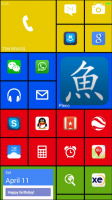TequilaMike
Member
Mike, I've been a huge fan of Pleco for several years now. I'm 100% certain that if it wasn't for this app, I wouldn't have completed the Chinese major program at my university. I've been following long enough to know of your love for iOS, indifference to Android, and disdain for Windows. In previous threads you had no interest in developing for WP7/8 for lack of return on investment (time/money).
Now that Microsoft plans to merge the development of all their devices under W10 (desktops, laptops, tablets, phones, Xbox, HoloLens, etc.), will you consider finally developing for Windows? I'm no programmer, but if I understand correctly, the same code can be used across all of these devices.
What would be the reason against developing for W10? If you don't wish to port the program yourself, can't you outsource the work? Pleco seems to be popular enough for their to be financial inventive on these platforms.
P.S. Imagine a future where you can stare at a Chinese sign using HoloLens and have Pleco OCR overlay the translation!
Now that Microsoft plans to merge the development of all their devices under W10 (desktops, laptops, tablets, phones, Xbox, HoloLens, etc.), will you consider finally developing for Windows? I'm no programmer, but if I understand correctly, the same code can be used across all of these devices.
What would be the reason against developing for W10? If you don't wish to port the program yourself, can't you outsource the work? Pleco seems to be popular enough for their to be financial inventive on these platforms.
P.S. Imagine a future where you can stare at a Chinese sign using HoloLens and have Pleco OCR overlay the translation!

